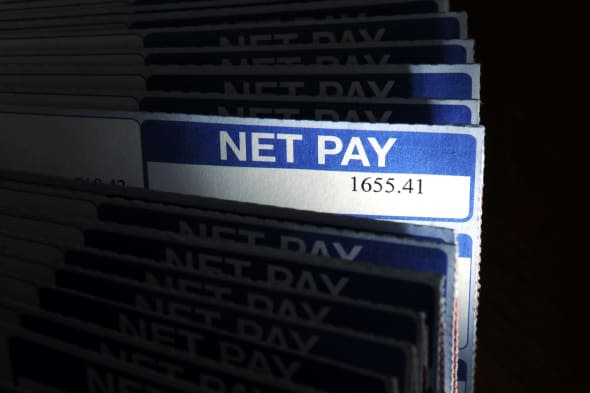Women earn more than men - until they become mothers

The good news is that the gender pay gap is disappearing in the UK - the bad news is that we've got a motherhood pay gap instead.
New figures from the Office for National Statistics (ONS) show that there is still a big difference between the average earnings of men and women, with women taking home 9.4% less than men. While men working full-time earn a median salary of £29,400, the figure's just £23,900 for women.
But the pay gap has fallen dramatically since 1997, when it was 17.4%. And it's now appearing later, with women out-performing men in their thirties for the first time. Women now earn marginally more than men in their twenties and thirties - until the child-bearing years begin.
"The full-time gender pay gap may have closed for younger women but it widens dramatically for women in their 40s and 50s," says TUC secretary Frances O'Grady.
"Far too many women still find they have to take a step down to access flexible or reduced hours once they become mothers, and their earnings never recover even when they return to full-time work."
Some occupations are more unequal than others, with the biggest gender pay gap showing up in skilled trades such as electrician, florist or chef. Next come process, plant and machine operatives, followed by managers, directors and senior officials.
The most equal pay is to be found amongst sales and customer service staff, administrative and secretarial and the caring and leisure industries.
Article continues below

It's worth noting that the gender pay gap widened last year, and the new figures show no more pay equality than in 2012.
"Nearly six million women work part-time and they earn £5.15 less per hour than full-time men," says O'Grady.
"Two in five of part-time women earn less than the living wage. "We need better paid, flexible, part-time work opportunities, and better paid leave for fathers to encourage more equal parenting."
The government has announced that, from next year, rights to shared parental leave and tax-free childcare will come into effect.
It has also invested £2 million in a training and mentoring scheme that will target women working in the science, technology, engineering and maths (STEM), retail and hospitality management and agricultural sectors.
"I am delighted that the gender pay gap has reduced to its lowest point in history. However, there is more to be done and the government will continue to work with industry to make sure it reduces even further," says minister for women and equalities Nicky Morgan.
"Women are vital to the success of our long-term economic plan and we need to make the most of their skills at every age. We have more women in work than ever before, but businesses need to value diversity in their workforce and pay attention to the role of women in their organisations."
Read more on AOL Money:
Microsoft CEO tells women not to ask for pay rises
Gender pay gap widens for first time in five years
Gender pay gap highest for over-50s



